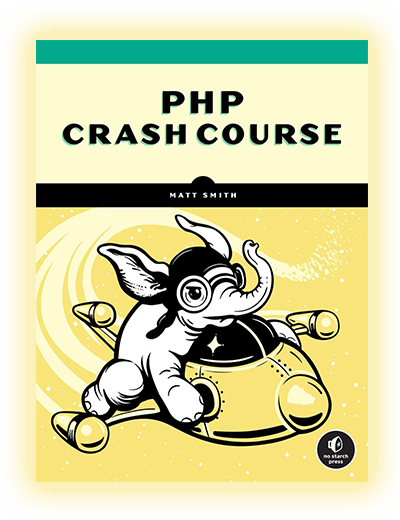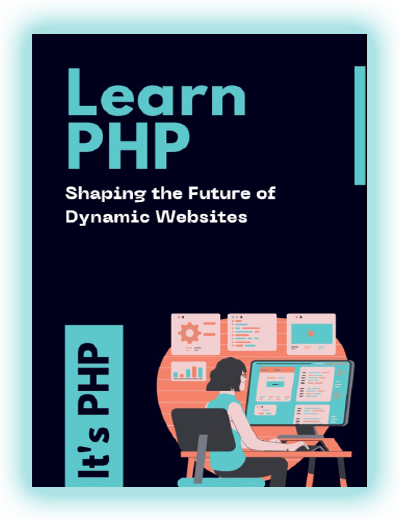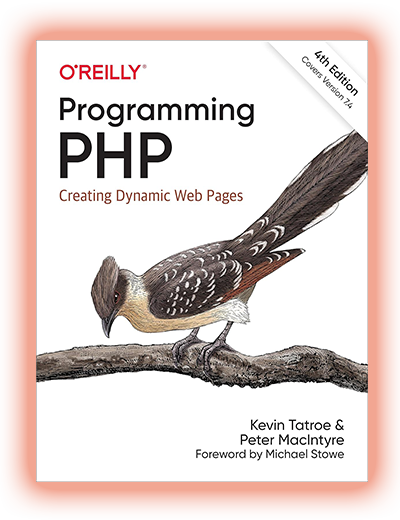I’m David Martinez, a PHP Software Engineer with a Master’s degree in Information Systems from the University of Madrid. I’ve been developing web applications professionally since 2012, with a strong focus on backend architecture, security, and performance. PHP was my entry point into programming, and it remains my primary tool for building scalable, business-critical systems.
Over the past decade, I’ve worked across industries - from e-commerce to SaaS platforms - architecting REST APIs, building custom CMS solutions, and integrating third-party services. I write about PHP books because I want to help developers at all levels find learning resources that are technically accurate, modern, and deeply practical. In a language with so much evolution over the years, the right book can make or break your foundation.
Coding with Purpose, Not Just Syntax
As an engineer, I believe in writing code that lasts. Simplicity, maintainability, and clarity are at the heart of my development style. I’m a strong advocate of modern PHP practices and view clean architecture as the best investment in any project’s future.
- Follow SOLID principles
- Prioritize security from day one
- Prefer clarity over brevity
- Test everything that matters
- Use design patterns purposefully
- Automate deployments and testing
- Respect code reviews and documentation
Each My Article is Built on Lessons Learned from Complex, Real-life Projects
- 7 Automation Strategies to Streamline Your WordPress Maintenance in 2025
- How Programmers Can Use Affiliate APIs to Build Monetized Microservices
- Cloud storage and FTP: synergy of technologies for modern data storage!
- Cloud Managed Services: Simplifying Cloud Operations
- What is PHP Programming Language in Web Development?
Crafting Reliable Web Backends with PHP
I’ve worked as a lead PHP developer on both greenfield and legacy projects. My toolkit includes Laravel, Symfony, Doctrine ORM, PHPUnit, and tools like Docker, GitLab CI, and API Platform. I enjoy mentoring junior developers and often conduct code audits and performance reviews.
Highlighted Projects:
QuickCart – E-commerce Platform for SMBs. Developed a Laravel-based e-commerce engine for small businesses. Included multi-tenant support, Stripe payments, and order management. Used Blade templating, Horizon for queues, and implemented custom middleware for security.
BookAPI – Public API for Digital Libraries. Built a RESTful API using Symfony and API Platform to serve millions of book records. Integrated Elasticsearch for high-speed querying and JWT-based authentication for secure access.
IntraNetix – Enterprise Knowledge Portal. Migrated a legacy intranet written in procedural PHP to a modular Laravel architecture. Added SSO integration, advanced ACL roles, and scheduled reports using Laravel Scheduler and queues.
ReportForge – PDF Reporting Microservice. Created a standalone service that generated custom reports from user data. Used DOMPDF, custom caching, and Redis queues to ensure responsive UX under load. Integrated seamlessly with multiple client apps via a JSON API.
HealthCheckr – Health App Backend. Engineered a backend API for a fitness app tracking workouts and biometric data. Followed TDD using PHPUnit and used Docker Compose for a fully containerized dev/test environment.
My PHP Stack for Modern, Maintainable Web Applications
As a PHP Software Engineer, I focus on writing clean, testable, and scalable backend code using modern PHP standards. I’ve worked across monoliths and microservices, always aiming to build systems that are easy to reason about and safe to evolve. My development philosophy centers around simplicity, solid architecture, and strong collaboration between business logic and infrastructure.
Here’s a breakdown of the core technologies I use and how I apply them in professional PHP projects:
| Technology | Using Since | How I Use It in Practice |
| PHP (OOP, Modern Syntax) | 2012 | My primary language for web application logic, API development, and CLI tooling. I follow PSR standards and apply SOLID principles across all codebases. |
| Laravel | 2015 | I use Laravel for building full-stack web apps, REST APIs, and job queues. I leverage its expressive syntax, Eloquent ORM, and built-in testing support. |
| Symfony Components | 2016 | I integrate components like Console, Routing, and DependencyInjection for custom microservices and decoupled architectures. |
| Doctrine ORM | 2015 | Used in Symfony projects for database abstraction. I manage migrations, relationships, and custom queries using Doctrine’s DQL and QueryBuilder. |
| MySQL / MariaDB | 2012 | I design relational schemas, write optimized queries, and manage data consistency across transactional systems. Indexing and query profiling are part of my daily work. |
| PHPUnit | 2014 | I write unit and integration tests using PHPUnit, often combined with mocking tools and coverage tracking. I treat tests as core application assets. |
| Docker | 2018 | I containerize PHP applications for consistent local and CI environments. I use Docker Compose to orchestrate services like databases, queues, and Redis. |
| Composer / PSR Standards | 2013 | I manage dependencies with Composer and follow PSR-4 autoloading, PSR-12 coding style, and PSR-7 HTTP messaging in all projects. |
Starting with PHP? Here’s What Helped Me Most
- Start with "Test-Driven Development with PHP 8" by Rainier Sarabia (online guide)
- Learn OOP before jumping into frameworks
- Practice building a small CRUD app
- Master basic tools: Composer, PHPUnit, Xdebug
- Avoid tutorials that use outdated PHP versions
- Explore Laravel or Symfony once you know the basics
My Answers to Common PHP Questions
Q1: What’s the right first PHP book for absolute beginners?
I always recommend starting with a book that teaches PHP through small projects. PHP and MySQL Web Development (by Welling & Thomson) remains a solid intro, especially if paired with modern updates. Look for books covering PHP 8+ and emphasizing best practices - like Composer, error handling, and OOP. Don’t start with a framework before learning core PHP.
Q2: Is Laravel the only way to build PHP applications today?
Laravel is fantastic, but it’s not the only tool. Symfony is a powerful alternative, and in some cases, pure PHP with Slim or custom architecture works better. Frameworks are tools - the real focus should be on how well your app is designed, structured, and tested. Laravel is great for rapid development, but don’t become framework-dependent.
Q3: How do I write secure PHP code?
Security starts with mindset. Always validate inputs, escape outputs, and use built-in tools like prepared statements (PDO). Learn about CSRF, XSS, SQL injection, and how to prevent them. I also recommend learning password hashing with password_hash() and using HTTPS for all traffic. Books that cover secure web app architecture are worth their weight in gold.
Q4: What makes a PHP book worth reviewing?
For me, it’s a mix of technical accuracy, structure, and practical value. I look for books that explain why something works - not just show how. Visual diagrams, clear code samples, and exercises matter. I value books that aren’t afraid to go deep into concepts like SOLID, dependency injection, and architecture.
Q5: What advice do you give junior developers learning PHP today?
Stay curious. Don’t just copy code - ask why it works. Read documentation and official RFCs. Follow PHP community blogs, attend meetups if possible, and always use version control. Also: test your code. Learning PHPUnit early builds great habits and makes debugging easier as your codebase grows.




